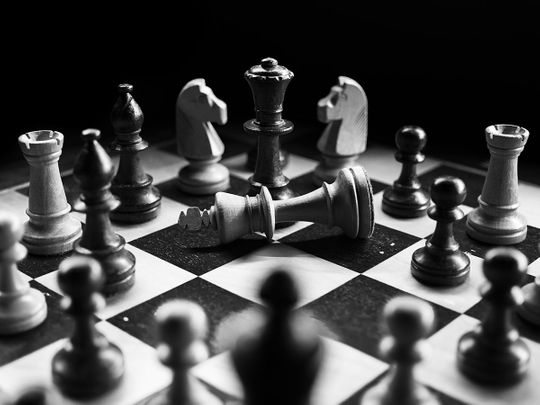
The complex, head-scratching game of chess is perhaps one of the few games that has only increased in its complexity as time has passed. What makes it so difficult?
Click start to play today’s Crossword, where “chess” is the answer to one of the clues.
It’s not the oldest game in history, but comes close – the first chess game (or a form of chess) dates back to 6AD, and was discovered in India. It was called chaturanga, and was a four-player game instead of two.
Since then, the game has passed through several civilisations and come out more complex and difficult to master. It isn’t as simple as following a pattern on the board – every piece has a specific movement it can do, and the game requires you to remember not just the movement of your own pieces but that of your opponents’ too.
Learning techniques, reading your opponent to understand their strategy, and adapting to their moves all add further layers of difficulty. Add to that the time constraint, and you’ll understand why winners of chess tournaments are called ‘grandmasters’.
The supremely strategic and logical mind of chess champions has been used in situations with much higher stakes, through history. At the start of World War II, British intelligence established a high-security operation at Bletchley Park, where code-breakers gathered to decipher the cyphers of the Nazi armed forces – Wehrmacht, Luftwaffe and Kriegsmarine.
Bletchley Park is known to have recruited virtually every leading chess master in the UK for the purpose of code breaking. One of them, Conel Hugh O’Donel Alexander, for instance, was named the British Chess Champion twice, and even defeated upcoming Soviet world champion Mikhail Botvinnik, in the 1946 Anglo-Soviet radio match.
Alan Turing, the English mathematician whose ideas led to early versions of modern computing, was also a chess player, although he didn’t excel at it. According to an April 2020 report in US-based news website The Article, even though he wasn’t adept at the game, Turing was fascinated by chess and created the first viable chess program. He developed algorithms on paper, which could lead to a selection of chess moves – similar to computer-based chess. Since computers hadn’t been invented yet, the program was operated with a paper and pencil.
Did you know about chess’s role in politics and war? Play today’s Crossword and tell us at games@gulfnews.com.









